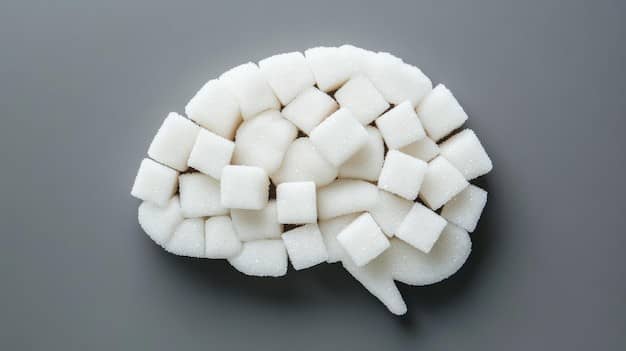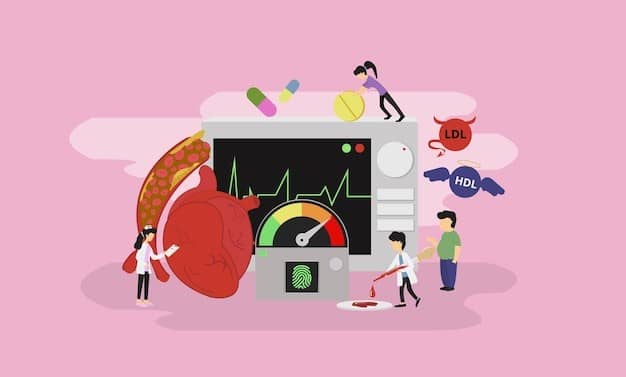Artificial Sweeteners and OCD: Are They Affecting Your Mental Health?
Introduction to How Artificial Sweeteners Are Affecting Your Brain and Mental Health
In recent years, attention has shifted to the possible effects of artificial sweeteners on mental health, increasing worries about their impact on disorders such as obsessive-compulsive disorder (OCD). While artificial sweeteners are frequently advertised as healthier alternatives to sugar, their long-term effects on brain function and mood regulation are still hotly debated.
Understanding Artificial Sweeteners

Artificial sweeteners, also known as non-nutritive sweeteners, are low- or zero-calorie compounds that substitute sugar in food and beverages. Common types include:
- Aspartame (found in sugar-free gum and diet sodas)
- Sucralose (marketed as Splenda)
- Saccharin (used in canned fruits and baked foods)
- Acesulfame potassium (often present in sugar-free beverages)
- Stevia is a natural sweetener extracted from the Stevia plant.
These sweeteners are frequently used to treat weight and diabetes. However, their effects on the brain and mental health are poorly known, raising worries about their potential impact on diseases such as OCD.
What Is OCD?

Obsessive-Compulsive Disorder (OCD) is a mental health disease defined by intrusive thoughts (obsessions) and repetitive behaviors (compulsions). These symptoms can considerably disrupt daily life. OCD is associated with serotonin abnormalities and increased activity in specific brain areas.
Given that artificial sweeteners have the ability to change brain chemistry, it is crucial to explore whether they exacerbate or possibly cause OCD symptoms.
The Brain, Sweeteners, and OCD: What's the Connection?

Artificial sweeteners are known to alter brain chemistry, but how does this relate to OCD? Emerging evidence suggests that these sugar alternatives may have an impact on neurotransmitters, gastrointestinal health, and inflammation, all of which are closely associated to OCD symptoms. Let’s look into the science underlying this intriguing connection.
1. Impact on Neurotransmitters
Artificial sweeteners, particularly aspartame, have been found to influence neurotransmitter activation. Aspartame, for example, degrades into phenylalanine, aspartic acid, and methanol. Phenylalanine can pass the blood-brain barrier and affect the creation of neurotransmitters such as dopamine and serotonin. Because serotonin dysregulation is a major role in OCD, artificial sweeteners may worsen symptoms by upsetting this balance.
2. Gut-Brain Axis and Mental Health
Emerging research emphasizes the importance of the gut-brain axis in mental health. Artificial sweeteners like sucralose and saccharin can disrupt the gut flora, resulting in dysbiosis. As gut health is inextricably tied to brain function, any imbalance in gut bacteria could exacerbate OCD symptoms by boosting inflammation or altering serotonin levels.
3. Inflammation and OCD
Chronic inflammation has been linked to OCD and other mental health disorders. Certain artificial sweeteners have been shown to cause inflammatory responses in the body. Sucralose, for example, has been found in animal experiments to enhance inflammatory markers. This raises questions regarding whether persistent use of artificial sweeteners may contribute to the onset or aggravation of OCD.
4. Artificial Sweeteners and Stress Responses
Artificial sweeteners have been linked to increased stress reactions. Stress is a major trigger for OCD symptoms, and regular consumption of these sweeteners may increase stress hormones such as cortisol, thus exacerbating OCD-related anxiety.
Research Findings: What Do the Studies Say?

Scientific research provides important insights into how artificial sweeteners may affect mental health, particularly their potential role in OCD. While additional human-focused research is needed, evidence from both animal and human studies indicate significant consequences.
1. Animal Studies
Animal studies shed some light on the effects of artificial sweeteners on mental health. Research has revealed that:
- Consuming aspartame in mice resulted in increased anxiety-like behaviours and changed brain neurotransmitter levels.
- Saccharin-treated mice developed altered gut flora and increased stress reactivity.
While these studies are not directly conclusive for humans, they do suggest potential processes through which artificial sweeteners may affect OCD.
2. Human Studies
Human research on the link between artificial sweeteners and OCD is scarce. However, more extensive studies suggest that artificial sweeteners can have an effect on mood and cognitive performance. For instance:
- According to a study published in Psychopharmacology, aspartame consumption is associated with poorer mood and cognitive function in sensitive individuals.
- Another study found that artificial sweeteners may cause headaches and mood swings, which could indirectly increase OCD symptoms.
Practical Implications: Should People with OCD Avoid Artificial Sweeteners?
While direct data associating artificial sweeteners and OCD is still emerging, individuals with OCD should consider the following:
1. Monitor Symptoms

If you use artificial sweeteners frequently, keep track of your OCD symptoms. Take note of any trends or worsening of intrusive thoughts or compulsions following the consumption of these substances.
2. Choose Natural Alternatives

Consider substituting artificial sweeteners with natural alternatives such as:
- Honey.
- Maple syrup.
- Coconut sugar.
These options offer sweetness without the possible neurological and gastrointestinal negative effects of artificial sweeteners.
3. Focus on Gut Health

Consume probiotics and prebiotics, as well as a fiber-rich diet, to support gut health. This can help to mitigate the potential disturbances produced by artificial sweeteners.
4. Consult a Professional

If you feel that artificial sweeteners are causing your OCD symptoms, see a doctor, a nutritionist or psychiatrist can offer tailored advise based on your health and eating habits.
Artificial sweeteners, while popular as sugar alternatives, may have unforeseen consequences for mental health, including OCD. Although the existing research is inconclusive, the relationship between artificial sweeteners, neurotransmitter activity, gastrointestinal health, and inflammation suggests that they may have a role in worsening OCD.
Individuals with OCD must practice mindful eating and watch how various foods and additives affect their mental health. Making informed food choices and obtaining professional advice might help you take proactive efforts toward better mental health and OCD control.
Jaslok Hospital, Best hospital for rtms for ocd in Mumbai, provides comprehensive psychiatric and nutritional services to anyone seeking expert advice on how to manage OCD and other mental health disorders. Jaslok Hospital, with its expert doctors and cutting-edge facilities, is committed to assisting you in achieving your best mental health and well-being.


